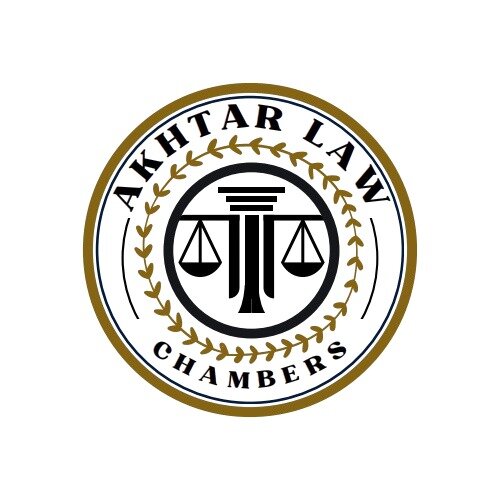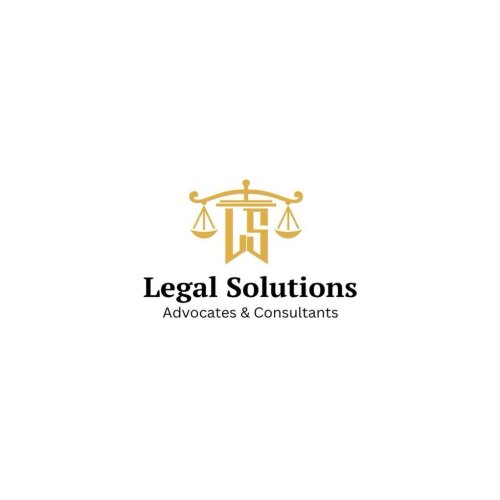Best Information Technology Lawyers in Pakistan
Share your needs with us, get contacted by law firms.
Free. Takes 2 min.
Or refine your search by selecting a city:
List of the best lawyers in Pakistan
About Information Technology Law in Pakistan
Information Technology (IT) in Pakistan has seen rapid growth over the past few decades, positioning itself as a key sector in the country's economy. The expansion of internet services, mobile phone usage, and digital platforms has led to a boom in IT services and startups. The Pakistani government recognizes the significance of IT in economic development, resulting in the formulation of various laws and regulations to govern this dynamic field. IT law in Pakistan covers a broad spectrum, including data protection, cybersecurity, intellectual property rights, and digital transactions.
Why You May Need a Lawyer
There are several situations in the field of Information Technology where legal assistance may be crucial:
- Data Privacy: Businesses collecting customer data might face legal challenges regarding compliance with local and international data protection laws.
- Cybersecurity Breaches: In the event of data breaches or cyber attacks, legal help is often needed to navigate the aftermath and compliance with statutory reporting obligations.
- Intellectual Property Disputes: IT companies often require legal assistance in protecting their software, applications, and technological innovations from infringement.
- Contract Negotiations: IT contracts can be complex, involving service agreements, licensing, and outsourcing, where legal expertise ensures fair and legally binding arrangements.
- Regulatory Compliance: Businesses in the IT sector need to ensure their operations align with national and international laws, including, but not limited to, licensing agreements and digital payments.
Local Laws Overview
Pakistan has implemented several laws relevant to Information Technology:
- The Prevention of Electronic Crimes Act, 2016 (PECA) outlines the legal framework for electronic crimes and associated punishments.
- The Electronic Transactions Ordinance, 2002 provides legal recognition for electronic documents and signatures, facilitating e-commerce growth.
- The Data Protection Bill, which is expected to be enacted soon, aims to govern the protection of personal data and privacy of citizens.
- Intellectual property rights are protected under the Copyright Ordinance, 1962 and the Trademark Ordinance, 2001.
Frequently Asked Questions
What is the main law governing cybercrimes in Pakistan?
The Prevention of Electronic Crimes Act, 2016 (PECA) is the principal law dealing with cybercrimes in Pakistan.
How can I protect my intellectual property in the IT field?
You can protect your intellectual property by registering your patents, trademarks, and copyrights through the relevant governmental bodies in Pakistan.
Are electronic signatures legally recognized in Pakistan?
Yes, electronic signatures are legally recognized under the Electronic Transactions Ordinance, 2002.
What are the penalties for data breaches under Pakistani law?
Penalties for data breaches under PECA can include significant fines and imprisonment, depending on the severity of the breach.
What should a business know about data privacy in Pakistan?
Businesses should stay informed about the requirements of the upcoming Data Protection Bill and already-existing standards under PECA for handling personal data.
Is e-commerce regulated in Pakistan?
Yes, e-commerce is regulated under the Electronic Transactions Ordinance, 2002, which provides the legal framework for electronic commerce transactions.
How can I ensure my software is protected against unauthorized use?
Registering copyrights and possibly patents for your software can help protect it against unauthorized use and distribution.
What are my obligations in case of a cybersecurity incident?
You must report certain cybersecurity incidents to the appropriate authorities, as dictated by PECA, and follow any additional legal guidance for managing the breach.
Can information from social media be used as evidence in legal proceedings?
Yes, information from social media may be considered strong evidence in court, provided it is obtained legally and is relevant to the case.
What should I consider when entering a software licensing agreement?
Key considerations include understanding the scope of the license, payment terms, support and maintenance provisions, liability clauses, and termination conditions, often requiring legal counsel to navigate.
Additional Resources
- Pakistan Software Export Board (PSEB): Provides support to IT businesses in Pakistan, including resources and regulatory information.
- Ministry of Information Technology and Telecommunication: The government body responsible for overseeing IT laws and regulations.
- Pakistan Telecommunication Authority (PTA): Regulates and oversees telecommunications, ensuring compliance with IT-related legislation.
- National Response Centre for Cyber Crimes (NR3C): A specialized unit dealing with cybercrimes and offering support and advice.
Next Steps
If you find yourself in need of legal assistance in Information Technology, consider the following steps:
- Identify Your Needs: Determine the specific IT legal issue you are facing, whether it is related to data privacy, intellectual property, cybersecurity, or another area.
- Consult an IT Lawyer: Seek advice and representation from a lawyer specializing in IT law to ensure expert guidance and a deeper understanding of the relevant legal landscape.
- Research Available Resources: Utilize governmental bodies and online resources mentioned above to gather more information and potential support.
- Prepare Documentation: Gather any relevant documents and information that may be needed during legal consultations or proceedings.
- Stay Informed: Keep yourself updated on any new laws or amendments in IT regulations that may affect your rights or obligations.
Lawzana helps you find the best lawyers and law firms in Pakistan through a curated and pre-screened list of qualified legal professionals. Our platform offers rankings and detailed profiles of attorneys and law firms, allowing you to compare based on practice areas, including Information Technology, experience, and client feedback.
Each profile includes a description of the firm's areas of practice, client reviews, team members and partners, year of establishment, spoken languages, office locations, contact information, social media presence, and any published articles or resources. Most firms on our platform speak English and are experienced in both local and international legal matters.
Get a quote from top-rated law firms in Pakistan — quickly, securely, and without unnecessary hassle.
Disclaimer:
The information provided on this page is for general informational purposes only and does not constitute legal advice. While we strive to ensure the accuracy and relevance of the content, legal information may change over time, and interpretations of the law can vary. You should always consult with a qualified legal professional for advice specific to your situation.
We disclaim all liability for actions taken or not taken based on the content of this page. If you believe any information is incorrect or outdated, please contact us, and we will review and update it where appropriate.
Browse information technology law firms by city in Pakistan
Refine your search by selecting a city.

















